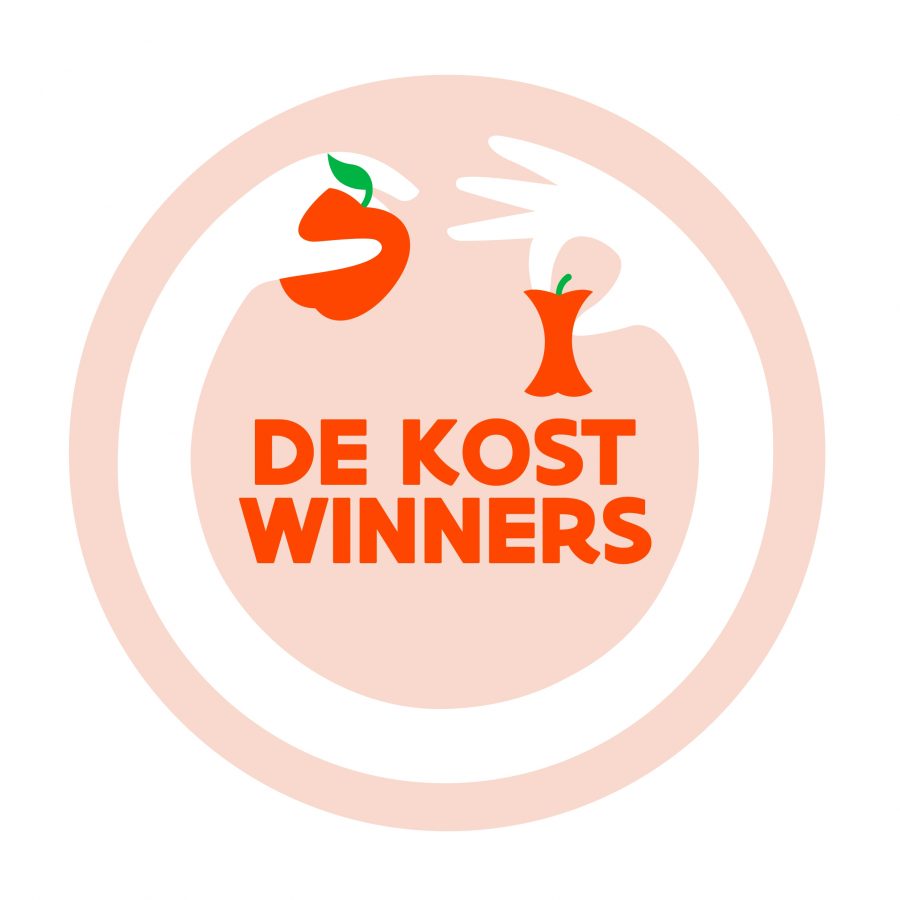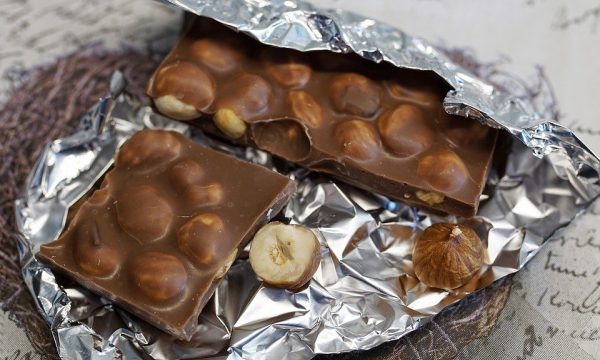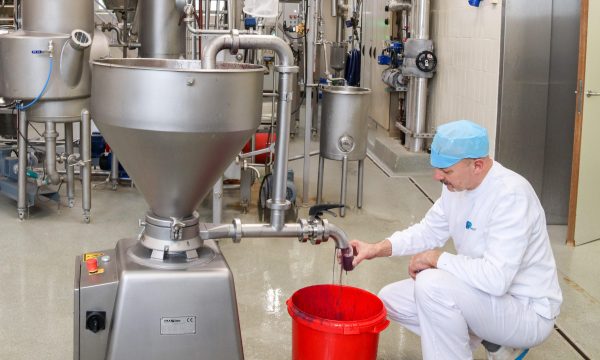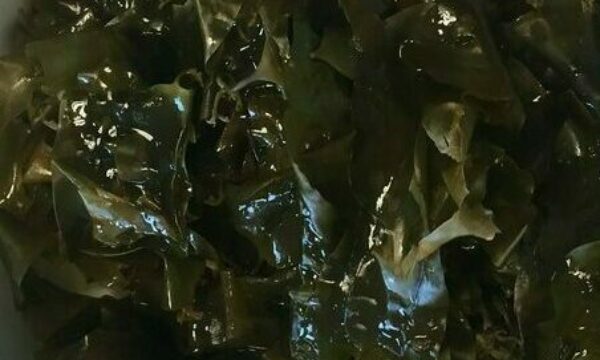Partner news Flemish partners join hands to fight food loss under a new name: De Kostwinners (the Breadwinners)

September 29 2022 is the International Day Against Food Loss. On this day, the Flemish government, together with the organizations making efforts in the fight against food loss, launched "The Kostwinners" (The Breadwinners): an enhanced collaboration between all partners working on the action plan against food loss. For a short introduction see www.dekostwinners.be..
De Kostwinners have already undertaken many actions within the food loss action plan, including a new app that estimates how much food is thrown away every day, a survey of industrial kitchens on waste, a mobile processing unit for fruit and vegetables and a declaration of commitment to local food policy.
30% less food waste in 2025
In 2021, the Flemish Government launched the Action Plan Food Loss and Biomass Residual Flows 2021-2025. In support of policy, this plan outlines concrete actions under the impetus of OVAM and the Department of Agriculture and Fisheries to avoid food loss and use food by-products in a circular way.
The entire chain wants to prevent 30% of food losses, reprocess it as food or valorize it better. To achieve the plan's objective, action is needed throughout the food chain. From producer to consumer, there are still many opportunities to prevent food losses and to grow more circular thinking from field to refrigerator.
More info about the action plan at www.voedselverlies.be.
De Kostwinners: together against food loss
What you do together, you do better. This is proven by the many organizations that are already joining forces today to reduce food loss. But also a lot of local governments, families, companies, etc. are dealing more consciously with food waste and are literally trying to "win bread". Now all these initiatives - large and small - have a common flag to march behind: 'De Kostwinners'.
Because we can all be a Kostwinner (a Breadwinner). All those who respect our food cycle and do everything possible to gain what can be gained can call themselves a Kostwinner. The farmer who is proud of his or her product and ensures that nothing goes to waste. Families who get creative with their leftovers every week and invent new recipes. All the social organizations that make sure donated food products find their way to those in need. Auctions, food processors, stores, restaurants ... all are doing their part to reduce food waste.
The goal of De Kostwinners is to help achieve these goals by increasing awareness and activating communication about avoiding food loss. On a larger scale, to draw more attention to an issue that affects us all and to give more people, companies, organizations, ... the opportunity to become a Kostwinner themselves.
Kostwinners is the movement fighting food loss in Flanders. Already convinced Kostwinners are the triggers of the food loss action plan, including the Department of Agriculture and Fisheries, Vlaco, VVSG, Comeos, HERW!N/Foodsavers, FoodWIN, ILVO, Flanders' FOOD, Fevia, Horeca Vlaanderen, Boerenbond, Agency Facility Management, the Federation of Belgian Horticultural Cooperatives and OVAM.
Both competent ministers support this initiative of the Flemish partners. Flemish Minister of Environment Zuhal Demir: "Every year in Flanders some 900,000 tons of food is lost. We throw more than €880 million into the dustbin, so to speak. The Flemish government has the ambition to turn the tide and reduce food loss by 30% by 2025. Among other things, by no longer considering discarded food as waste, but as a new raw material in the circular economy, we ensure an enormous cost saving for all Flemish families and for the food sector. A win for our wallets and for our environment."
Jo Brouns, Flemish Minister of Agriculture and Food, also supports De Kostwinners: "The fight against food loss has been on the Flemish Government's radar for some time. For the implementation of the action plan, OVAM and the Department of Agriculture and Fisheries are working closely with 25 partners from the entire agri-food chain, because every link in the chain, from farm to fork, can do its bit to avoid loss or to valorize more highly. I am glad that with De Kostwinners we are strengthening this collaboration and together focus even more on citizens: a winning team against avoidable loss. Also in the Flemish food strategy, which we are preparing with many partners, this important theme will not be missing."
Actions in the spotlight
On this International Day Against Food Loss, we are pleased to highlight a number of Kostwinners who are actively working in the fight against food loss. But this is just the icing on the cake. At www.dekostwinners.be we present even more actions, and a lot of information can also be found on the individual partners' websites about all the ongoing initiatives to reduce food loss.
HERW!N/Foodsavers – www.foodsavers.be
FLAVOUR is a project with 10 partners from Flanders, France and Great Britain who are expanding their operation with European funds. They combat food loss, create jobs for people who have difficulty finding work and support people living in poverty.
It was assumed that the social added value of FLAVOUR would be tangible, but to make the added value even more tangible, VIVES Hogeschool and Plymouth Marjon University calculated the social return of the initiatives. They did so with the scientific support of the Social Value Engine Team (https://www.socialvalueengine.com). The results were astounding! In total, FLAVOUR generates 100 million euros in social returns and more than 33 million euros in Flanders. Each euro invested in the initiatives generates 11 euros of social added value. The figures show the importance of an inclusive social economy. It is cheaper for society to give people a job than to leave them in poverty. The project also shows that we need to be more careful with food, because it can have an enormously positive ecological and social added value. More info on https://flavour2seas.eu/flavour/
Vlaco - www.vlaco.be
Vlaco, the association that has been representing the policy and interests of the organic cycle in Flanders for 30 years, is launching Plan-eet, an app that helps to combat food loss. The app allows you to estimate how much food you throw away every day, but it also contains a lot of tips on how to limit food loss. Think of techniques to optimize food storage, fun recipes to incorporate leftovers into, and even tips to buy only what you need at the store. Plan-eet is therefore not only an app that helps us waste less food, but one that makes us more conscious of food. The app has been available on the Play store since Sept. 26.
FoodWIN – www.foodwin.org
FoodWIN wants to break the taboo around food loss in large kitchens. An annual survey should encourage the sector to strive to reduce losses. Johanna Meuwissen of FoodWIN is encouraging: "The first step to tackle loss is to carry out a baseline measurement. That measuring pays off was demonstrated by last year's results: on average, large-scale caterers that measure and implement actions multiple times reduce their food loss by 20%."
In 2021, company restaurants emerged as winners. As many as 70% said they already measure. Youth services and schools still appeared to have the most work to do. The survey of caterers is open until October 5th 2022. More info and the link to the survey on https://foodwin.org/impact-keukens/.
Comeos – www.comeos.be
The trade and service sector is also strongly committed to initiatives against food loss. For example, the sector is investing, together with its suppliers, in ecological and circular product innovation so that products stay fresh longer. New circular business models are being created and consumers are also being actively involved by informing them about waste reduction, reuse, repair, longevity and recycling. Dominique Michel, CEO Comeos: "All initiatives together are creating a significant impact. For example, by 2020, 98% of all food was effectively sold. And of the small fraction that does not get sold, no less than 91% is processed for animal feed, for soil improvers via fermentation and for biochemistry." All Comeos results and commitments can be found in the Roadmap for Corporate Social Responsibility in the trade and services sector: https://csr.comeos.be/.
ILVO – www.ilvo.vlaanderen.be
Food losses occur at every link in the food chain: on farm, in the processing industry, distribution, retail all the way to the consumer's home. Together with all interested actors and stakeholders, ILVO is committed to reducing these losses and maximizing the utilization of all produced biomass, with attention to socio-economic and sustainability aspects. Together with these partners, ILVO develops research projects tailored to a specific link, problem or opportunity, and seeks subsidies for these where possible. An example of an ongoing European research project with full focus on reducing food losses is the ZEROW project. More info on www.zerow-project.eu.
Boerenbond - www.boerenbond.be
Farmers and growers are committed to reducing food losses just to get as much potential out of their produce as possible. Farmer organization Boerenbond is taking action against food losses through innovative projects such as Food Heroes and Food From Food, and is currently participating in the ZEROW project. Often logistics is a bottleneck and ZEROW is addressing this by demonstrating a mobile processing unit for fruits and vegetables. In this way, processing is moved to locations where needed, fewer fruits and vegetables are lost, and they are processed into longer-lasting, healthy and flavorful products.
VVSG - www.vvsg.be
On Sept. 27, 2022, the Association of Flemish Cities and Municipalities (VVSG) launched its declaration of commitment to local food policy. Food is a perfect theme to make a number of environmental, health and climate themes concrete to citizens. Recognizing the connecting importance of food policy and the crucial directing and exemplary role of local governments in a food system, the VVSG commits to nine commitments around food, including (socially) engaging with food surpluses. The full document, which explains more about the crucial role of local governments, the power of cocreation and why food connects, can be found at www.vvsg.be/kennisitem/vvsg/engagementsverklaring.
Flanders’ FOOD – www.flandersfood.com
Flanders' FOOD, the innovation platform for the Flemish agri-food industry, is busy developing a strategic research and innovation agenda to make better use of by-products in the Flemish agri-food industry in order to reduce losses in the chain. A textbook example of such a project is cauliflower rice. Today it's a common product in our freezer, but it was first created thanks to a research project in collaboration with ILVO and Greenyard Frozen. Together they figured out how to lose as little as possible from a cauliflower plant, from the field to finally on the plate. More about this project and other innovative success stories at www.flandersfood.com/nl/Story/2019/Bloemkoolrijst.
VBT – www.vbt.eu
The Federation of Belgian Horticultural Cooperatives (VBT) brings together many fruit and vegetable auctions in Flanders. The member organizations are taking the following initiatives:
REO Veiling works together with the Food Banks, some PCSWs and with actions such as Foodsavers and enVie to avoid wasting unsold produce. Concretely, in 2021, REO Veiling still gave some 400 tons of unsold vegetables a destination for human consumption.
BelOrta also works with Food Banks and social employment projects. These projects make soups and smoothies from the cooperative's surplus.
In 2021, Coöperatie Hoogstraten collected 22,229 tons of food that was distributed to more than 177,000 people through the Food Banks. The number of people relying on the Food Banks increased again last year and the fear is that this number will increase even more due to high energy prices and the war in Ukraine.
Fevia Vlaanderen – www.fevia.be
Food companies have been fighting food loss for years. They are taking many measures to produce more efficiently, to reduce the loss of raw materials and to valorize by-products, primarily as animal feed. Fevia Flanders helps its members with tips and via projects on audits within food companies.
Tackling food loss is one of the concrete objectives in the recent sustainability roadmap of the food industry. More info on this strategic roadmap and examples of actions against food loss can be found at
www.fevia.be/nl/duurzaamheidsroadmap/de-groene-transitie-omarmen-en-versnellen/2915. One of the actions is the charter that Fevia and the Food Banks signed together. With it, they are strengthening cooperation to further encourage donations of surplus food.
Too Good To Go – www.toogoodtogo.be
Too Good To Go, the app that saves meals from restaurants and stores, is hosting 7 Days Without Food Loss. Each day since Monday, Sept. 26, 2022, users are challenged to work together to combat food loss. This is done through tips and tricks, delicious recipes and inspiration to reduce food loss at home. More about the action at www.toogoodtogo.be.
In addition to these initiatives, there are other projects and organizations that are throwing their weight behind the Kostwinners Movement. In the coming years, the entire food chain will need to work together even more intensely to achieve the goals set out in the Food Loss Action Plan. At www.dekostwinners.be we will bring all these actions together in the future so that anyone looking for support or inspiration to become a Kostwinner themselves will not have to look far.


